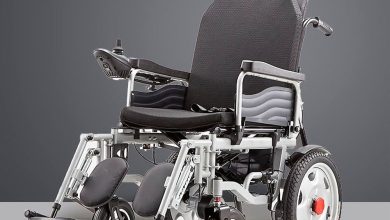
Add alternative data to your credit profile
Alternative data refers to information that has not traditionally been widely found in credit reports,
such as your rent, utility, or cell phone payment history.
When you’re just starting out and have a small file, additional accounts
(with on-time payments) may help you build credit. If you can get this information to the credit bureaus,
they may be able to add it to your credit reports.
Some companies, like Experian Boost and eCredable, allow you to link eligible bank or utility accounts.
The programs look for qualified payments or accounts that can report to an agency.
Currently, Experian Boost can add data to your Experian credit report while eCredable reports to TransUnion.
There are also services like LevelCredit, which you can use to add rent payment information to your credit reports.
As with other alternative data, rental reporting programs may only report your information to one or two of the bureaus.
Is it possible to have a zero credit score?
No, there is technically no way to have a zero credit score. You may have no credit history and therefore no credit scores,
but it is not possible to have a score of zero.
Most credit score ranges offered by major scoring models like FICO® and VantageScore® 3.0 start at 300 and up.
Next Steps: Build Great Credit
Once creditors start reporting information to the credit bureaus, the credit
bureaus can use that information to create credit reports.
Rating companies can analyze your credit reports to generate credit scores.
Don’t worry if you can’t get a FICO credit score right away, because
you need to have an account that’s been open for at least six months on your credit report before you’re eligible for a FICO score.
On the other hand, VantageScore can provide you with a score after just one month.
You can access your free VantageScore 3.0 credit scores from Equifax and
TransUnion at Credit Karma at any time from any device.
As you begin to build credit, your financial goals may go beyond simply getting a credit score.
Good or excellent scores can help you qualify for the best deals and not be held back by poor credit.
Here are some steps you can take as you work to build excellent credit.
- Pay your bills on time. One of the most important credit-scoring factors is your payment history.Try to have a system that reminds you when bills are due and make at least the minimum payment on time.Even accounts that aren’t usually reported to credit bureaus can be important because unpaid accounts can be sent to collections, which can hurt your credit.
- Use your credit cards sparingly. Another important scoring factor is how much of your available credit limits you’re currently using,also known as credit utilization. Using only a small portion of your availablecredit is best for your scores (experts recommend keeping your utilization below 30%).
- Open different types of accounts. Although not as important as your payment or utilization history,having a combination of installment loans and revolving credit card accounts can also help improve your credit score.
While there are many complexities to credit, you don’t need to know all the ins and outs to build great credit.
Start by opening accounts with creditors who report to the major consumer credit bureaus,
pay your bills on time, and limit your credit card use, and over time, you can do just that.
In the words of an expert
Q: Why is credit history so important?
A: Lenders use credit histories to partially determine a potential borrower’s creditworthiness
and ultimately to decide how much credit a borrower can get and on what terms.
Obtaining credit is often very important for buying high-value items like cars, appliances, and houses.
Also, employers and landlords often use a good credit history as a positive indicator when screening job applicants and potential tenants.
Q: What is the best way to build a credit history?
A: Getting initial access to credit is the best way to start building a credit history.
This can be done with a secured credit card or a loan. You can improve
your chances of accessing secured credit by maintaining a positive balance in a checking account
over a period of time to demonstrate your ability to consistently save a portion of your income.
— Joshua Bernstein, assistant professor of economics at Indiana University Bloomington


